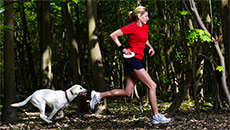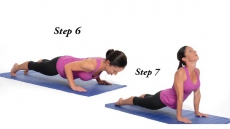During summer time hay fever, a condition that shows signs similar to a cold with sneezing, is common. Two-thirds of sufferers claim that their current treatment isn’t helping to alleviate the symptoms, so here are some tips that can help people sneeze-proof their summer.
Pollen from trees, grass and even weeds causes millions of Britishers to suffer symptoms from watery, itchy eyes to frequent sneezing and an itchy throat, mouth, nose and ears between May and September.
Joe Unsworth, consultant immunologist at Spire The Glen Hospital Bristol, has shared his tips for a sneeze-free summer, reports femalefirst.co.uk.
Be prepared: Lots of people think hay fever is an allergic reaction to pollen released from flowers. In fact in Britain, it’s mainly the pollen from trees (March - May) and grass (May-September) and to a lesser degree weeds, that give us all the unpleasant symptoms.
Knowing what pollen triggers your symptoms (a simple safe skin test can give results on the spot) helps you to time the start of your treatment. For some people occasional use of medication may suffice, but for others daily preventative treatment (starting a week or so before symptoms begin) may be best.

Wear sunglasses: Itchy eyes can be one of the most debilitating symptoms of hay fever, but wearing sunglasses can help a little to block the pollen from reaching the eyes in the first place. You should wear them for as much of the day as possible but make sure you put them on early in the morning and as the sun goes down which is when pollen counts are highest.
Shake it off: Your clothes and hair can act as magnets for pollen. If you’ve been outside, take a few minutes to give your clothing a good shake before you go indoors. Have a shower, wash your hair and change into clean clothes to minimise symptoms once you’re inside.
Chill out: A link has been found between stress and hay fever. The higher your stress levels, the worse your symptoms. Find a way to relax. Exercise can be a useful way to relax, but avoid doing it outside in the early morning or evening. If your symptoms are really bad, consider an activity that you can do indoors such as yoga or swimming.
Cut out booze: Alcohol has a dehydrating effect on the body, which can make hay fever symptoms worse. Cutting back on your intake of wine, beer and spirits could really make a difference to how badly you suffer.
Consider alternative options: The best treatment is nasal drops/sprays containing corticosteroid (strong anti-inflammatory), with or without antihistamines and eye drops. But when all these just aren’t doing the trick, it could be worth considering immunotherapy.






